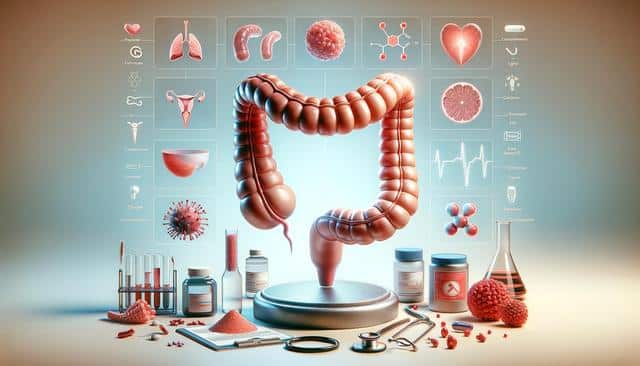
Recognizing the Signs and Symptoms of Colon Cancer
Understanding Changes in Bowel Habits
One of the earliest and most noticeable signs of colon cancer is a change in bowel habits. These changes can vary depending on the location and size of the tumor in the colon. Individuals might experience persistent diarrhea, constipation, or a feeling that the bowel is not completely empty even after a bowel movement. These symptoms may come and go, but if they last more than a few weeks, it’s important to seek medical evaluation. Other changes to be aware of include:
- Narrow or pencil-thin stools
- Unexplained urgency to move the bowels
- Frequent gas or bloating
While temporary changes in bowel habits can be caused by diet or minor infections, persistent symptoms should not be ignored. Monitoring these changes and noting their frequency and duration can help healthcare providers in making a timely diagnosis.
Blood in Stool or Rectal Bleeding
Blood in the stool is one of the more alarming symptoms associated with colon cancer. This symptom may present as bright red blood on toilet paper or darker, tarry stools caused by bleeding higher up in the colon. While rectal bleeding can also be caused by benign conditions like hemorrhoids or anal fissures, it should always be discussed with a healthcare provider to rule out more serious conditions.
Some individuals may not see visible blood but may experience iron deficiency anemia due to chronic blood loss. Signs of anemia include:
- Fatigue and weakness
- Pale skin
- Shortness of breath
These symptoms can develop slowly and may be overlooked until the underlying cause is identified. A stool test or colonoscopy may be recommended to determine the source of bleeding and to confirm or rule out colon cancer.
Unexplained Weight Loss and Fatigue
Unintentional weight loss—especially when not linked to changes in diet or activity level—can be a warning sign of colon cancer. Cancer can increase the body’s energy consumption or interfere with how nutrients are absorbed, leading to noticeable weight loss. Fatigue is another common symptom, often resulting from anemia or the body’s response to cancer itself.
Signs to watch for include:
- Losing more than 5% of body weight within a few months
- Persistent tiredness despite adequate rest
- Difficulty completing normal daily activities
These symptoms should not be dismissed, particularly when they occur alongside other digestive changes. Consulting a healthcare provider can help identify the cause and lead to appropriate treatment if needed.
Abdominal Pain and Cramping
Colon cancer can cause various forms of abdominal discomfort. These may range from general cramping to sharp pain localized in one part of the abdomen. As the tumor grows, it may cause blockages in the intestines, leading to more severe pain and symptoms such as nausea or vomiting.
Common complaints include:
- Persistent gas pains or bloating
- Abdominal tenderness that doesn’t improve
- A feeling of fullness even after small meals
These symptoms can sometimes be mistaken for less serious gastrointestinal issues, such as irritable bowel syndrome (IBS) or indigestion. However, if the discomfort is persistent or progressively worsening, medical assessment is important for accurate diagnosis and care.
When to Seek Medical Attention
Recognizing the signs and symptoms of colon cancer is the first step toward timely diagnosis. While many of the symptoms can be caused by other conditions, it’s crucial not to delay medical evaluation, especially if multiple signs appear together or persist over time. Early detection significantly improves treatment outcomes and survival rates.
It’s advisable to consult a healthcare provider if you experience:
- Persistent changes in bowel habits
- Visible blood in stool or unexplained anemia
- Ongoing fatigue or weight loss without a clear cause
- Abdominal pain that doesn’t go away
Screening plays an important role in identifying colon cancer early, even before symptoms appear. Routine colonoscopies or stool-based tests may be recommended depending on your age, family history, and personal risk factors. Stay informed and proactive about your digestive health for long-term well-being.
Conclusion: Prioritizing Awareness and Early Detection
Understanding the symptoms of colon cancer empowers individuals to take timely action. While these signs can be linked to other, less serious conditions, persistent or combined symptoms should prompt medical evaluation. Early detection remains a critical factor in successful treatment and recovery. If you or someone you know is experiencing these symptoms, consult a healthcare provider for guidance and screening. Staying informed and attentive to bodily changes can make a meaningful difference in health outcomes.


